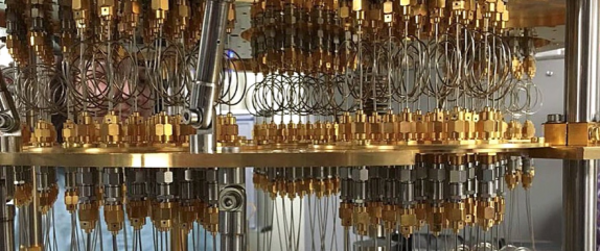Scalable Hardware Platforms for Quantum Computing
687. WE-Heraeus-Seminar
13 Jan - 17 Jan 2019
Where:
Physikzentrum Bad Honnef
Scientific organizers:
Prof. Dr. David DiVincenzo, RWTH Aachen and Forschungszentrum Juelich • Dr. Stefan Filipp, IBM Research – Zurich • Dr. Andreas Fuhrer, IBM Research – Zurich • Prof. Frank Wilhelm-Mauch, Universität des Saarlandes

Quantum computers are currently in the spotlight of high-performance computing. The media and even some scientific publications suggest that it is simply a matter of amassing enough qubits to produce quantum computers with phenomenal performance that solve the most complex problems imaginable in the very near future. Indeed, enormous progress has been made regarding the number and control of qubits, materials, fabrication, integration, understanding of error sources, quantum algorithms etc.. However, a closer look reveals that that this interdisciplinary field still requires a great deal of innovation before a quantum computer will be built. The holy grail of quantum computing, a universal gate-based quantum computer, requires qubits with extremely low error rates and integrated error-correction, e.g. via the “surface code”. But this calls for many thousands of physical qubits to define a single, error-free logical qubit. While in isolated experiments the required low error rates have been shown in several different qubit platforms, it has not yet been unambiguously demonstrated that this type of error correction can in fact lower a quantum system’s error rate.
This deficit can be attributed primarily to the fact that all elements in the system must function equally well with the highest fidelity. In particular,
- Two-qubit interactions must feature low error rates.
- Qubits must be coupled with at least their adjacent neighbors. This requires that qubits can be controlled from a nonplanar direction to enable scaling to larger processors.
- The calibration of the system must be exact, time-stable and fast.
- It must be possible to manipulate and select qubits simultaneously and with high fidelity, which places high demands on the control electronics. For error correction, a fast logic process is required to correct all occurring errors.
- A software environment is needed to efficiently generate quantum circuits on a given hardware platform.
To meet these challenges, a better understanding of the physics of error sources is critical. This will require well-controlled experiments with some tens or hundreds of qubits on scalable qubit platforms. Moreover, we need realistic quantitative comparisons of various technologies and platforms, e.g. via the “quantum volume,” a metric to compare gate-based quantum computer hardware by calculating the product of the number of qubits and the number of possible error-free sequential gate operations. Computing this quantity for existing platforms makes it clear that scaling to 50–100 qubits or higher does not yield higher performance. This raises questions regarding the key innovations to improve existing systems, and how the nucleation of new ideas can be fostered.
The conference language will be English. The Wilhelm and Else Heraeus-Foundation bears the cost of full-board accommodation for all participants.
Further information can be found at this website

